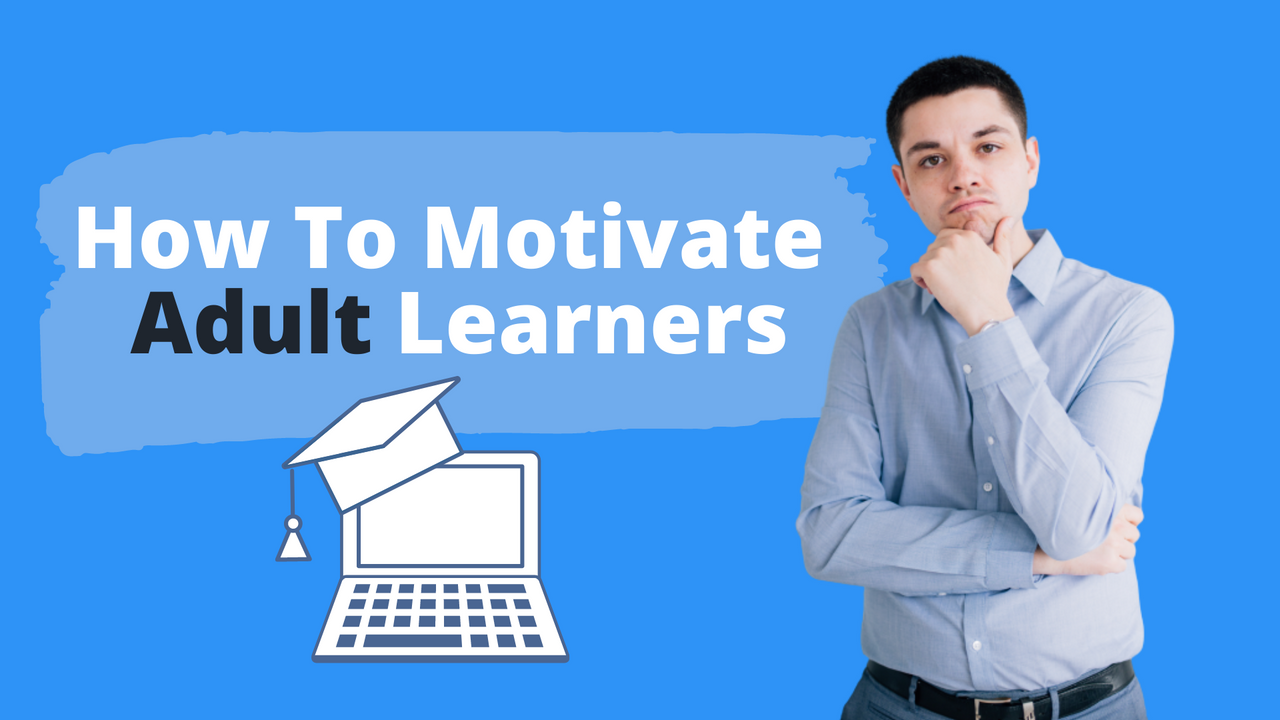How To Motivate Adult Learners

6 methods of motivation
They say learning is a never-ending process however as we progress in years our learning methods change. Unlike children who have no experience and depend on their teacher’s knowledge, adults have the life experience to draw on and understand the importance of learning a subject or a skill.
We as teachers need to remember that Adult learning is intentional and voluntary. An adult student has already set themselves a goal and that is the reason they are in the class.
How do you as a teacher make sure that adult students stick to their action plan and see it through?
1. Create Value

Adults have family and work commitments and trying to fit in learning commitments can be a challenge. Teachers need to go beyond just teaching and highlight the fact that the time invested in learning can build students’ self-confidence, improve their self-worth and lead to financial gains in form of better job opportunities.
It is crucial for the learners to clearly understand the importance of their learning and how it can change their lives for the better.
2. Forge a Bond

Adult learners have preconceived notions about learning styles, subject matter, and their own abilities based on their beliefs, culture, and past experiences.
Treat your students with respect and empathy, be prepared to reach out, and help your students overcome self-doubt and learning barriers.
Take time to communicate off-topic to build a sense of community.
Cultural awareness is essential if your students are from culturally and linguistically diverse backgrounds.
Positive student-teacher relationships motivate learners and promote their desire to learn.
3. Be Relevant and Engaging

Relevance and applicability are pivotal to keeping adult learners motivated. Improvise where necessary and give your mature learners the opportunity to apply prior knowledge to the learning experiences. Make your lessons fun and interactive and encourage student participation through role-plays, games, problem-solving activities. riddles etc. Ensure that students embrace their learning as an experience and not a chore.
4. Actuate Social Interaction

Facilitating adequate group discussions and social interactions will encourage your students to not only practice and apply their newly acquired skills but also reflect, validate and retain the information. Social interaction helps students stay involved and feel connected with peers. Use cooperative learning as a tool to scaffold student learning.
5. Volition

Adult learners are afraid of failure and embarrassment. Online learning requires self-regulation and the onus is on the student. Many adults struggle with organizing their learning environments and managing the time needed for instructions.
Giving them freedom of choice will develop their commitment. Accessibility and convenience will encourage volition. Provide meaningful choices in form of free materials, short videos, lectures, etc. that learners can use in their own time to consolidate their learning at their own pace. Adult learners will persist if they feel they have some control over their learning.
6. Feedback

Feedback plays an important role in the learning process. It is a 2-way street that helps students improve their learning and teachers rethink their teaching techniques.
Timely feedback helps learners and teachers to refocus so as to close the gap between current performance and desired goals.
This by no means is an exhaustive list of tips to stimulate your students. Please feel to try them out along with other strategies that you may have devised over time.
Happy Teaching!
-written by Preeti Lamba
